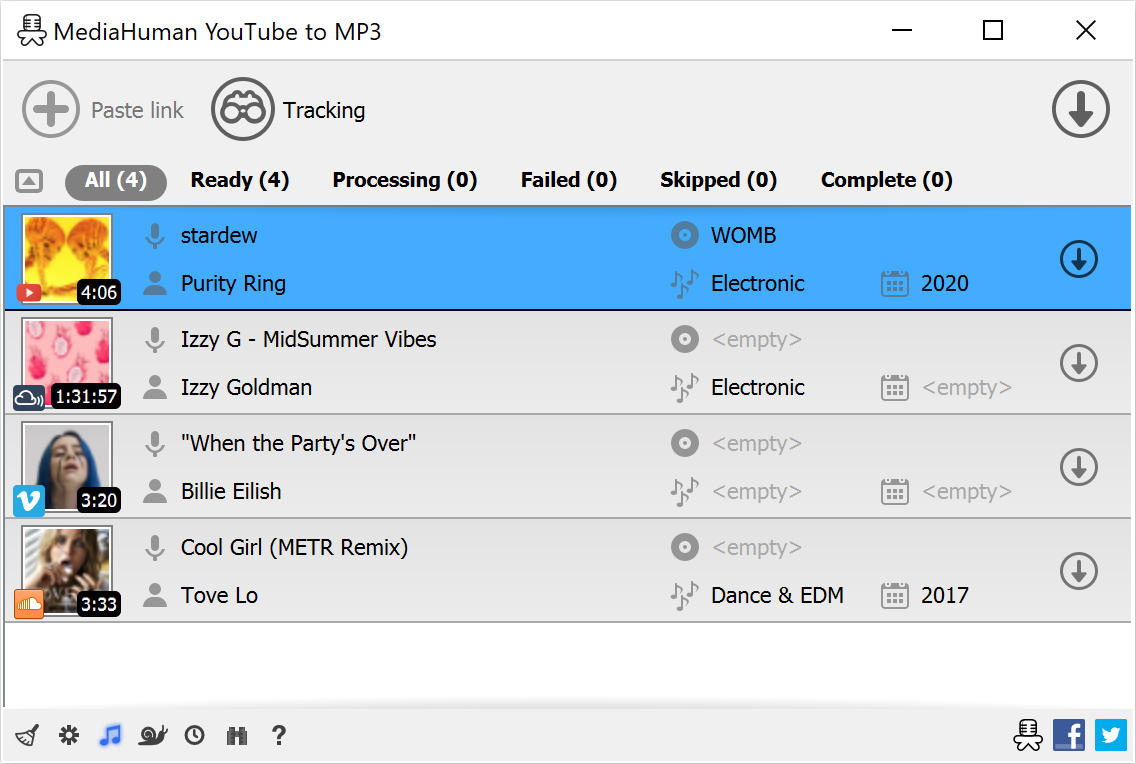MP3 music converter is a powerful tool that allows you to convert audio files from one format to another, making it easy to enjoy your favorite music on any device. Whether you’re a music enthusiast, a podcast producer, or simply someone who wants to share audio files with friends, an MP3 music converter can be a valuable asset.
Table of Contents
These converters work by analyzing the original audio file and then encoding it into the MP3 format, which is a compressed digital audio format widely supported by various devices and platforms. The conversion process involves extracting the audio data from the source file, applying compression techniques, and then saving the resulting file as an MP3.
Best Practices for MP3 Music Conversion: Mp3 Music Converter
Converting music to MP3 format can be a great way to save space, share your music with others, or listen to it on the go. However, there are a few best practices you should follow to ensure that your converted files are of high quality and compatible with different devices.
Choosing the Right Bitrate
The bitrate of an MP3 file determines the quality of the audio. Higher bitrates result in larger file sizes but better sound quality. Lower bitrates result in smaller file sizes but may compromise audio quality.
- For high-quality listening, choose a bitrate of 320 kbps or higher. This is a good choice for listening on high-end audio systems or headphones.
- For general listening on portable devices, a bitrate of 192 kbps is a good compromise between file size and quality.
- For streaming or sharing on social media, a bitrate of 128 kbps may be sufficient.
Maintaining Audio Quality
- Use a high-quality audio converter. There are many different MP3 converters available, but not all of them are created equal. Look for a converter that uses advanced algorithms to minimize audio loss during conversion.
- Avoid using lossy compression techniques. Lossy compression techniques discard some of the audio data to reduce file size. This can lead to a noticeable decrease in audio quality.
- Normalize the audio levels. Normalizing audio levels can help to ensure that all of your tracks are at a consistent volume. This can make your music sound more professional and balanced.
Optimizing for Different Devices and Platforms
- Consider the intended use of the MP3 files. If you are converting music for use on a mobile device, you may want to choose a lower bitrate to save space. If you are converting music for use on a home audio system, you may want to choose a higher bitrate for better sound quality.
- Ensure compatibility with different platforms. MP3 files are generally compatible with most devices and platforms. However, some older devices or platforms may not support certain MP3 features, such as variable bitrates or ID3 tags.
MP3 Music Converter Resources

Whether you’re a seasoned audiophile or a novice looking to convert your music collection, understanding the world of MP3 music converters can be a valuable asset. There are many resources available to help you navigate the intricacies of MP3 conversion, learn about the latest tools, and find the best options for your specific needs.
Reputable Websites and Resources
These websites offer comprehensive information and tutorials on MP3 music converters:
- CNET: CNET provides detailed reviews and comparisons of popular MP3 music converter software, along with user ratings and expert opinions.
- PCMag: PCMag offers in-depth reviews of MP3 converter software, focusing on features, performance, and ease of use.
- TechRadar: TechRadar provides comprehensive guides and reviews of MP3 converters, covering both free and paid options.
- Lifehacker: Lifehacker offers practical tips and tricks for converting music files, including recommendations for the best MP3 converters.
User Forums and Communities
Connecting with other users can provide valuable insights and solutions to your MP3 conversion challenges. These forums are dedicated to discussing MP3 converters and related topics:
- Reddit: Reddit’s /r/audiophile and /r/musicproduction communities are great places to ask questions, share experiences, and find recommendations for MP3 converters.
- Gearslutz: Gearslutz is a popular forum for audio engineers and music producers, where you can find discussions on MP3 conversion and related topics.
- Hydrogenaudio: Hydrogenaudio is a forum dedicated to digital audio, with a section specifically for discussing MP3 conversion and related topics.
Recommended MP3 Music Converter Tools and Software
Here are some highly-rated and widely used MP3 music converter tools and software:
- Free Audio Converter: Free Audio Converter is a popular free software that supports a wide range of audio formats and offers basic conversion options.
- VLC Media Player: VLC Media Player is a versatile multimedia player that also includes a built-in audio converter.
- Audacity: Audacity is a free and open-source audio editor that allows for advanced audio manipulation, including MP3 conversion.
- Adobe Audition: Adobe Audition is a professional audio editing software that includes powerful features for converting audio files.
- Switch: Switch is a comprehensive audio and video converter that supports a wide range of formats, including MP3.
Last Recap
With its ability to convert audio files into the universally compatible MP3 format, an MP3 music converter empowers you to enjoy your music, podcasts, and other audio content across a wide range of devices and platforms. Whether you’re seeking to optimize your music library, share audio files, or simply enjoy the convenience of a standardized format, an MP3 music converter offers a versatile and efficient solution.
An MP3 music converter is a useful tool for changing audio formats, but if you’re looking to gather feedback on the quality of your converted files, you might want to consider using a survey tool like limesurvey. This platform allows you to create and send out surveys to your audience, getting valuable insights into their preferences and helping you refine your MP3 conversion process.
